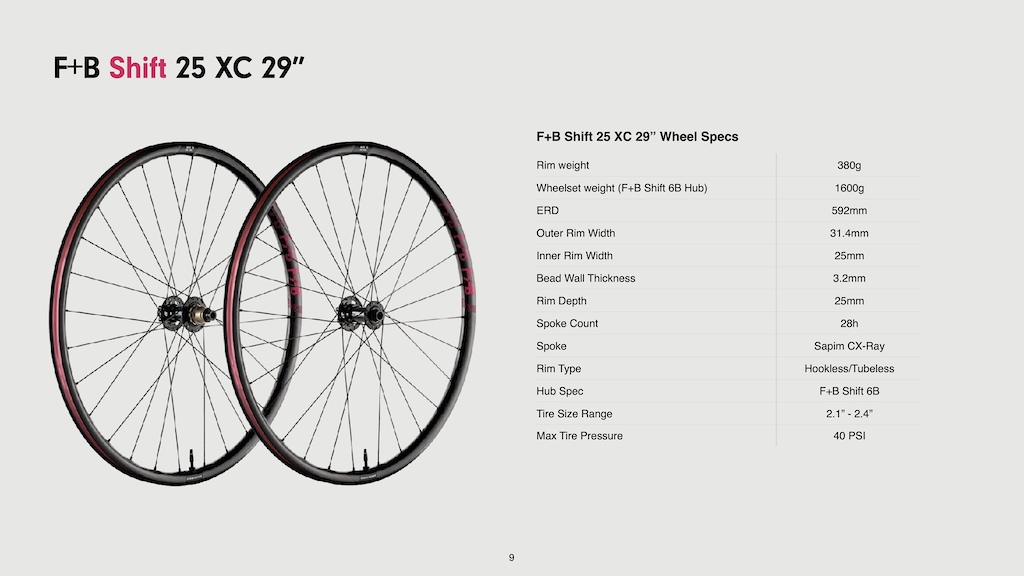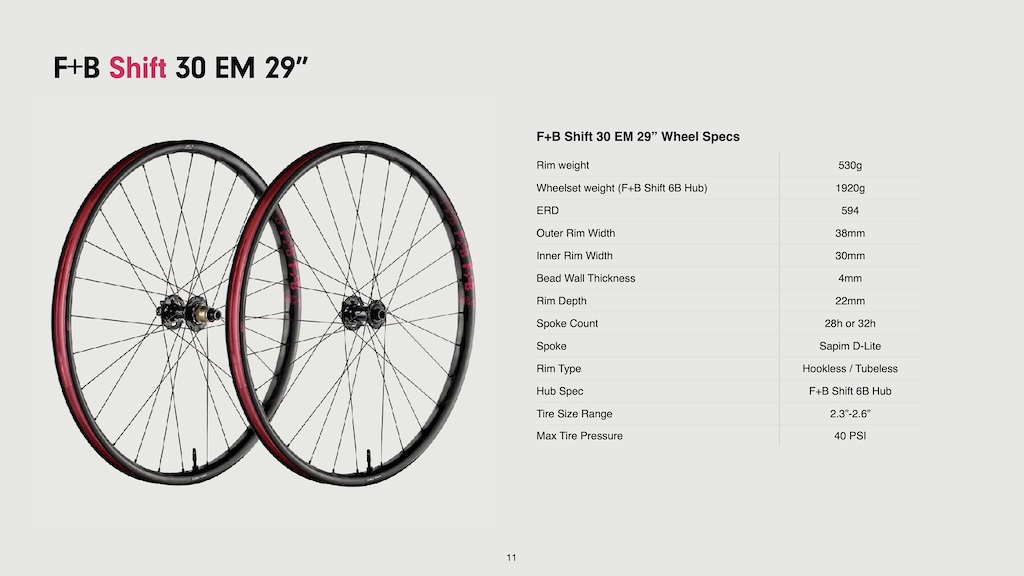Forge & Bond Release New Budget-Minded Thermoplastic Wheelset
These aren't the first wheels we've seen from Forge & Bond, buy they're certainly the least expensive ones from the Utah-based company. We touched on their first foray into the wheel market in a First Look last year, and this new release firmly addresses our main concern: price. All three of the new US-made wheelsets are $1,250 USD, which is half the price of their initial offerings.
Forge and Bond's claim to fame is their development of what they've dubbed FusionFiber - a novel material that implements long-chain nylon polymers as opposed to the typical resins used in carbon fiber manufacturing. It's essentially carbon fiber as we know it, with a twist. In addition to some claims made about improved ride feel, the material can also be recycled into smaller carbon products.
All of the wheelsets use Forge and Bond's in-house hubs. These boost-spaced 6-bolt hubs were developed in conjunction with Bitex, a Taiwanese brand with a long history of hub manufacturing.
Find out more at forgeandbond.com.
Author Info:
Must Read This Week





The quality is not really questionable on those 900 chinese wheelsets. Its the dearth of other off brand companies that pop in and out of exist for roughly two thirds the price of that
I dont really get the market for these ones
Also would like to know what would be best DH set ( 27.5)?
Some DT rims laced to hope hubs can be built up for under £500 and is more than enough wheel for literally any bike from toepath cruiser to WC race bike... Or you can spend over twice that on some Taiwanese cookie cutter hubs and some plastic rims and pretend "budget" has got anything to do with it.
This sport is getting ridiculous.
My friend just had 2 sets of cracked NOBL wheels repaired for 150 CAD each and even got warranty from place that repaired them.
Now, my rim damage is not that big, so I am planning to play with it and try to repair myself with a few sheets of carbon fabric and epoxy.
With warranty for most carbon wheels I would not really care about the possibility of wheel explosion, but I would def not buy these 2nd hand.
Re RECYCABLITY, I did some research as I liked the idea. I came to the conclusion that is a standard "greenwashing". These cannot be recycled, they however can be "downcycled" - they can make other things ( Revel makes tire levers) out of broken wheels. Recycling isn't possible because you cannot make new things out of it, you can only make something smaller size ( long fibers in these are compromised, so you can only make shorter length things out of the source material). As with everything - everything can be recycled, the question is only how viable it is. And to recycle my wheel I will need to get to at least Revel or contact the guys who made it for Revel. Obviously, this is too much work for the average consumer who is max willing to use blue recycle bin or do occasional trip to the bottle depot
Wasn't this tech already developed and dubbed by Guerilla Gravity? (RIP)
This tech is widely used in other industries.
Thermoplastics held much promise back in the analog days.
I'm not going back to aluminum wheels unless I get a sponsorship.
Also, if you have frequent rock strikes and crashes, you're not doing it right.
..it’s not working
And I’ve flicked similar sized rocks up without incident on other bikes.
I agree, the current thermoplastics are not completely ready for prime time.
But is carbon fiber the final destination? We need an alternative to carbon and aluminum that is tough, light, compliant and cheap.
Yeah, not there yet, though I’ve heard that somewhere lurking in material scientists labs are plastics that can fit the bill right now.
There are some tradeoffs with susceptibility to impact damage in the form of matrix/fiber cracking, but aluminum has tradeoffs too, mainly in the form of fatigue.
Pick an isotropic property and be a dick about it.
Yeah I didn’t like that choice of wording myself when I wrote it.
But putting a finer point on it would mean a lengthy explanation, and I really don’t feel like writing another novel just to placate the passive aggressive, devil’s advocate geniuses.
What you're describing is a fundamental problem of overly aggressive lightweight construction. That's supbar design, not a general shortcoming of the material. All of this can be entirely prevented by just adding material in critical zones. Add 200g to the weight of the frame, but it doubles in the amount of load cycles it can take.
If a modern frame, like a RAAW Madonna, is designed to withstand over 200.000 full load cycles on the test bench at EFBE, you've got no chance what so ever of killing that frame by fatigue alone. No matter how hard you ride, it won't happen. Chances are, you probably couldn't even find that much time to ride wihtin five years.
It's also a lot more expensive to replace a broken carbon frame or rim than a comparable aluminum one.
I have put plenty of time on F+B initial offerings, and the ride quality is considerably better than any other carbon wheelset I have ridden (I have spent lots of time on numerous others). Offering a significantly less expensive, sustainable carbon wheelset is amazing.